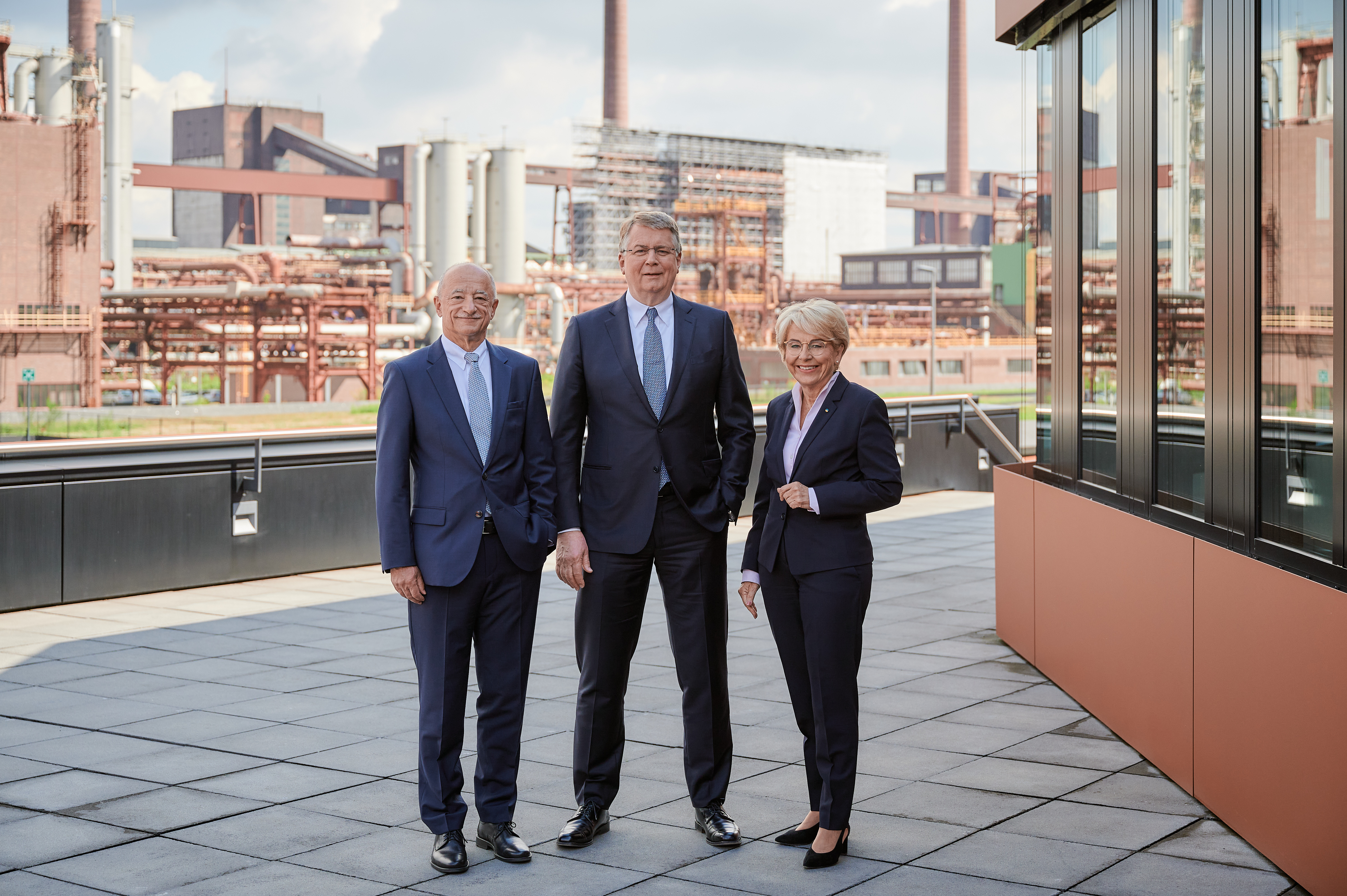Perpetual obligations significantly reduced / RAG-Stiftung generates high level of revenue despite ongoing challenges

- Cost of perpetual obligations decreased by €40 million
- Foundation sees itself well prepared in spite of challenging conditions
- Funding budget increased to €32 million
Essen, 1 June 2022. The Board of Executives of the RAG-Stiftung published the figures for financial year 2021 and provided an outlook on the current financial year at its annual press conference at the Zollverein World Heritage Site in Essen today. While the expenses for the perpetual obligations due to the German hard coal mining of RAG Aktiengesellschaft decreased significantly by about €40 million compared to the prior year, revenue was maintained at a high level.
“I am extremely pleased when a plan succeeds,” emphasised Bernd Tönjes, the Chairman of the RAG-Stiftung Board of Executives, at the foundation’s annual press conference in Essen today. He pointed out the significant decrease in the cost of the perpetual obligations to its current level of €264 million (prior year: €304 million), which resulted from the successful progressive implementation of the RAG’s pit water concepts. “This remarkable saving of about €40 million in the third year after the end of German hard coal mining is the outcome of careful long-term planning,” Tönjes said. On the revenue side, the RAG-Stiftung recorded an annual profit of €665 million in financial year 2021. Even after an adjustment for the sale of Evonik shares totalling about €261 million, this amount significantly exceeded the planned profit of €293 million. The foundation’s assets amounted to €21.3 billion at the end of 2021, thus continuing its previous asset development of annual increases measuring approximately €1 billion.
Like many other companies and capital investors, the RAG-Stiftung and its shareholdings were affected at the beginning of 2022 by the continuing effects of the coronavirus pandemic and the subsequent Ukraine crisis and its consequences. Nonetheless, Tönjes asserted his confidence about the future: “Our security in the face of crises is now being put to a hard test once again. However, the foundation is standing up to this test with its robustness unchanged. In past years we were able to create a solid financial cushion that is now giving us the security we need.” Chief Financial Officer Dr Jürgen Rupp also underlined this assessment: “Revenue is what counts. Our assets have always been subject to shifts. The crucial factor is our ability to fulfil our obligations.”
During the past year the RAG-Stiftung added €853 million to its total diversified capital investments, which yielded a return of 12.4 per cent in 2021. “Our capital investments have posted above-average performance overall in recent years,” said Rupp. “Our risk budget held firm during the pandemic. We were able to maintain our investments, share in the general market upswing in the capital markets, and continue to increase our assets.” He added that in the months ahead it will be necessary, among other things, to continue preparing for rough waters in the capital markets in view of growing inflation and rising interest rates. “However,” Rupp emphasised, “the RAG-Stiftung is able to react flexibly to changes whenever they occur. At the same time, one of our past and present advantages is our basically long-term investment horizon. We will continue to make the most of this advantage in the future.”
Thanks to its solid financial basis, the foundation was able to continue providing valuable momentum to the former mining regions through its support activities in 2021. In the field of education, coping with the consequences of the coronavirus pandemic was an ongoing focus area. “The feedback from our funding recipients clearly shows that tremendous efforts are still needed to mitigate the consequences of the closures of children’s daycare centres and schools,” said Bärbel Bergerhoff-Wodopia, the RAG-Stiftung Board of Executives member who is responsible for Human Resources and the funding areas education, science and culture. She emphasised the RAG-Stiftung’s continued determination to compensate for deficits and leave no child behind.
Through a special budget of €2 million, the foundation will also assist refugees from Ukraine who have found shelter in the former mining regions. This assistance will include support for therapy centres treating traumatised Ukrainian children as well as accommodation for the parents of the refugee children and teenagers whose treatment for cancer is being continued at Essen University Hospital.
The foundation’s funding budget, which was €27 million annually from 2018 to 2021, will be increased once again to €32 million for 2022 and each of the two following years. “This budgetary increase is a strong signal, and it strengthens our determination not to slacken our commitment to providing local support,” says Bergerhoff-Wodopia.
At the close of his address, Bernd Tönjes stated that the foundation will continue to promote the transformation of the former mining regions above and beyond the fulfilment of its basic purpose. He said the challenges will not decrease in the future, especially against the background of the war in Ukraine. But he added that we should not lose sight of the greatest challenge facing mankind. “There is no vaccination against climate change,” Tönjes said. “Especially at the present moment, we must boldly think and act in line with greater sustainability.” He pointed out that the changes taking place today still offer opportunities as well. “The RAG-Stiftung will align its activities accordingly,” he said. “As a foundation group, we focus on the major future-oriented fields, and we see great potential in the areas where solutions for the challenges of our time must be found. We will earn our future income in these areas as well in order to fulfil our mission.”
![[Translate to English:] [Translate to English:]](/fileadmin/_processed_/3/5/csm_20240611_RAG-Stiftung_Pressejahresgespraech__offizielles_Pressefoto_62efd77056.jpg)